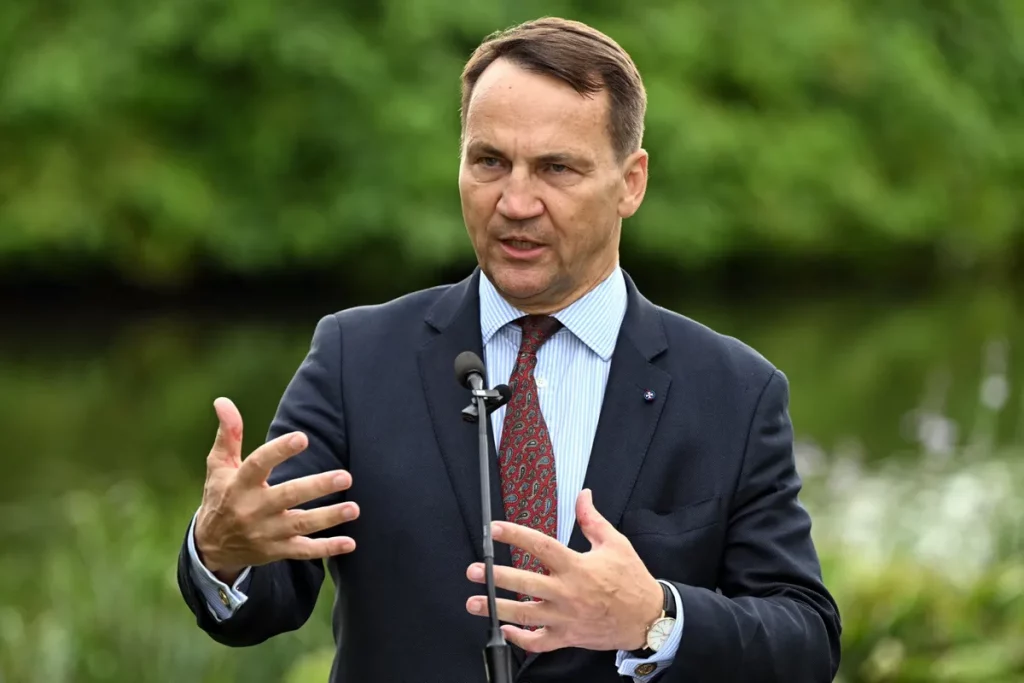Poland is turning to China for support as tensions rise along its eastern border with Belarus. Foreign Minister Radoslaw Sikorski is set to meet Chinese Foreign Minister Wang Yi outside Warsaw, where he is expected to raise concerns over a growing migrant crisis. The Polish government says the situation has been fueled by Russia and Belarus as part of what it calls a “hybrid operation” against the European Union.
Sikorski explained that Poland wants China to use its influence with Russia to end the crisis. He argued that Moscow’s actions have not only increased instability in Europe but also disrupted international trade routes. The closure of Poland’s border with Belarus last week has already blocked one of China’s most important rail connections to Europe.
The border shutdown followed large-scale military exercises known as Zapad, conducted by Belarus and Russia. Poland described these drills as a threat to its security and said they were directly linked to the surge of migrants being pushed across the border. The Polish government has accused both Russia and Belarus of deliberately directing migrants toward EU territory to create political and social pressure.
The situation is particularly sensitive because the affected border crossing is a major gateway for Chinese goods traveling by rail to Europe. With trade routes already strained by global tensions, any further disruption could hurt China’s economic interests in the region. This gives Poland hope that Beijing may be willing to act as a mediator to protect its commercial ties.
Sikorski has said that his discussions with Wang Yi will focus not only on easing the immediate border crisis but also on finding long-term solutions. He believes that stronger international cooperation is needed to stop Russia from using migration as a weapon. According to him, only by acting together can Europe and its partners prevent further destabilization.
Poland’s appeal to China reflects growing concern that the migrant crisis could escalate if not addressed quickly. Thousands of people have attempted to cross into the EU through Belarus in recent years, with Polish officials warning that many of them are being directed there by Russian-backed operations. The government has deployed additional security forces to the area and has insisted that its border closures are necessary to defend national security.
For China, the situation presents a difficult choice. While Beijing has strong ties with Russia, it also has major economic interests in keeping trade with Europe stable. Analysts say this could push China to quietly pressure Moscow to ease tensions, even if it does not openly take sides in the dispute.
As Sikorski prepares for talks with Wang Yi, Poland is signaling that it wants more than just European unity. By reaching out to China, Warsaw is trying to widen international involvement in solving the crisis, showing how global trade and security are closely linked in the modern migrant challenge.

